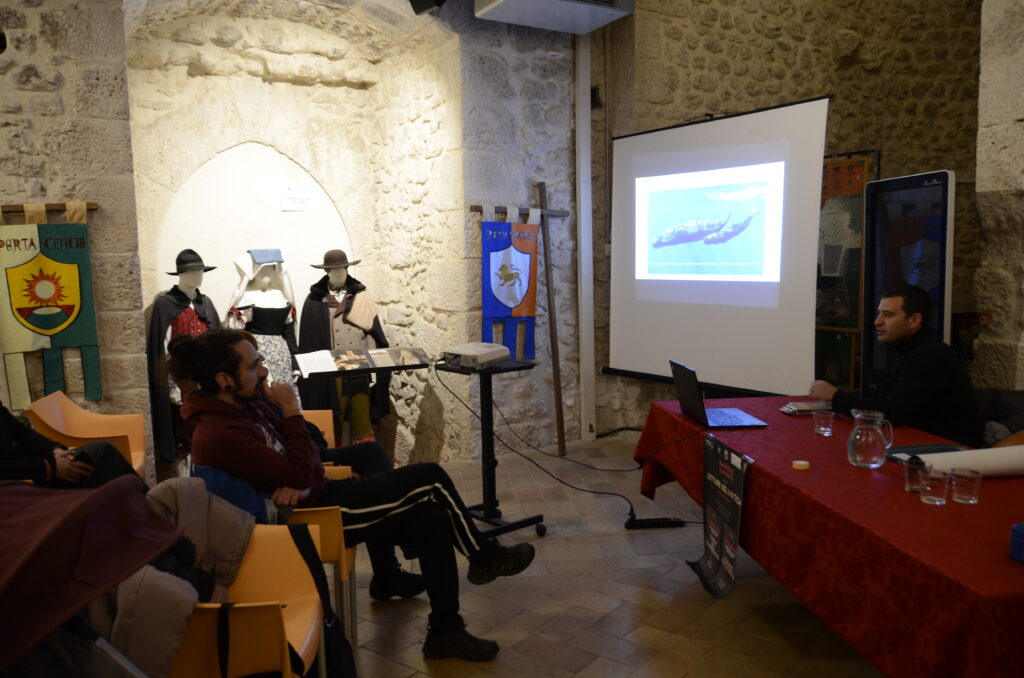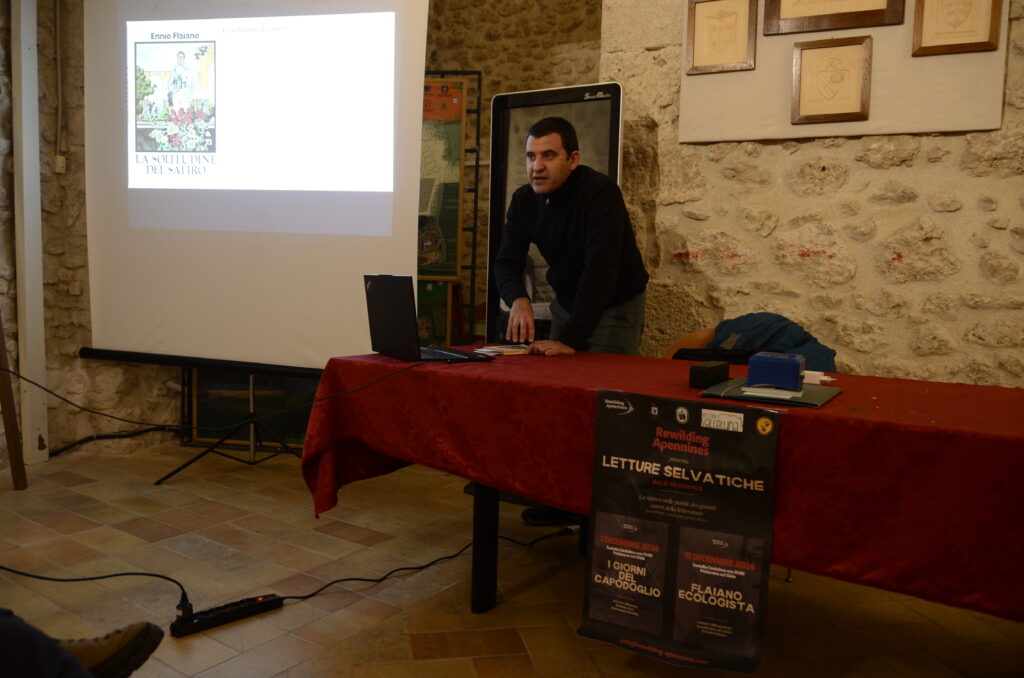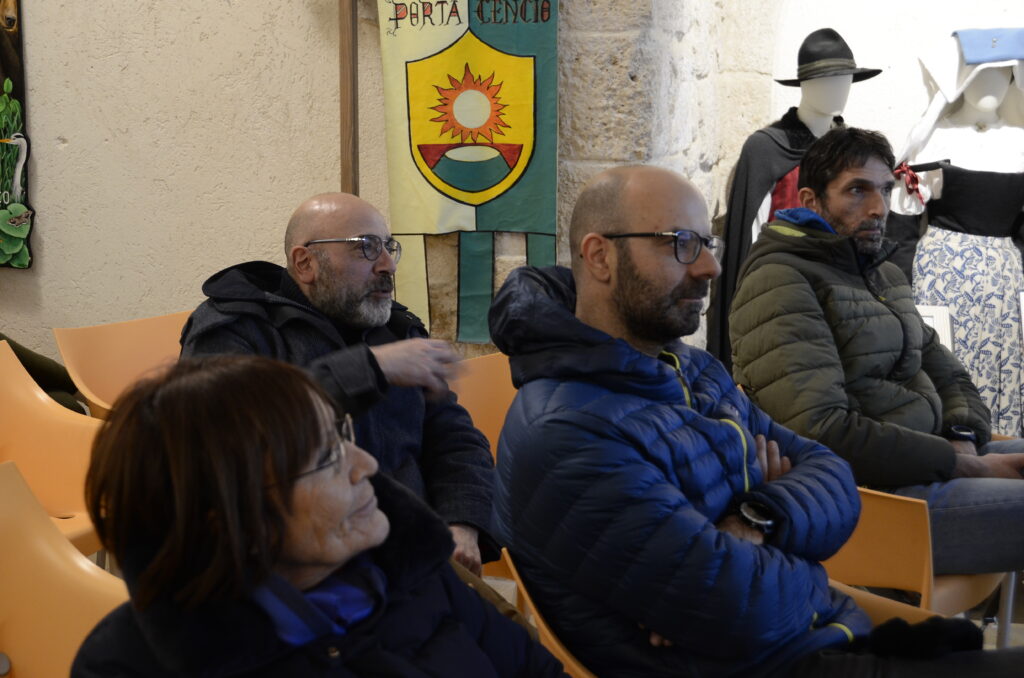Rewilding Apennines has organized “Wild readings,” a series of public events aimed at discussing nature, the transformations of the landscape, and how the relationship between humans and the environment has evolved over time through the works of renowned writers.

In December, we hosted two reading invitation events at the Cantelmo Castle in Pettorano sul Gizio, titled “Wild readings.” During these meetings, we engaged in open discussions about various themes surrounding the human-nature relationship and how it has changed over time, using excerpts from famous authors who, through their sensitivity to nature and narrative artistry, have produced intense and, in some ways, still relevant pages.
During the event “The days of the sperm whale,” Rewilding Apennines team leader Mario Cipollone selected passages from Herman Melville’s iconic “Moby Dick” to talk about this extraordinary creature, the sperm whale, and the ruthless hunting it endured in the past for its resources. He also discussed how technological evolution and shifts in energy sources have, in some ways, saved the species from possible extinction. However, the novel is also a profound journey into the human soul, exploring themes of solitude and the violent instinct to dominate and overpower nature and its creatures. There were also references to recent incidents of sperm whale strandings along the Adriatic coasts, which, in many ways, demonstrate how little we still know about the species and the impact we can have on the lives of these giants of the deep.

In the second event, ” Flaiano the Ecologist,” Mario read various excerpts from “The Via Veneto Papers” by the famous 20th-century Abruzzese writer Ennio Flaiano. With wit, irony, and a sensitivity to nature that was anything but common for his time, the author provided a snapshot of Italian society in the 1950s and 60s, which was so focused on “economic growth at all costs” that it overlooked the long-term effects of the significant landscape transformations taking place during that period. This led to reflections on urbanization near highly dynamic natural systems such as coastlines, rivers, and landslide-prone slopes, where extreme events—consequences of climate change—now impose costs on society at both social and economic levels.

The discussions with the audience during both events were stimulating and demonstrated how constant interest in these themes serves as nourishment for the human mind and encourages a more balanced daily relationship with nature. Reading is an engaging and passionate activity for those who appreciate it, allowing one to travel far and return to reality in an instant, with a richer background and new perspectives that we can all benefit from. We would have liked to see more participants at “Wild readings,” especially young people, but we hope for greater engagement in future editions.

We extend our gratitude to the Municipality of Pettorano sul Gizio, the Regional Natural Reserve of Monte Genzana Alto Gizio, and Coop Valleluna for their hospitality and collaboration.